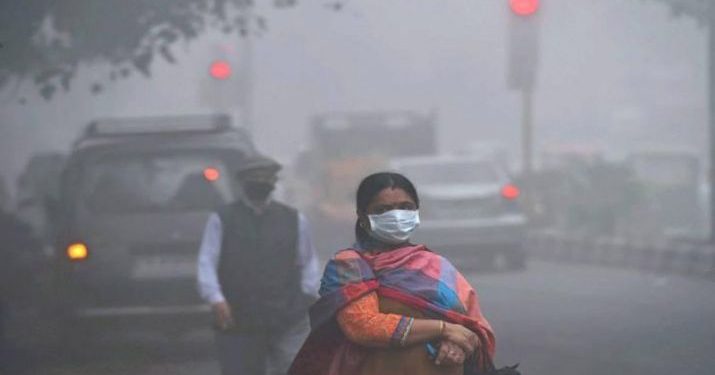We know that today lung cancer is the most common cancer and is the leading cause of cancer death worldwide. Around 1.6 million people die every year. Tobacco smoking is the most common cause of lung cancer. But it can also occur in people who have never smoked as well.
As per literature, 15% of patients diagnosed with lung cancer have no history of tobacco use. And 20% of women who developed lung cancer have never smoked. In recent years a large number of patients are being diagnosed all over the world, including India, in whom there is no such history of tobacco smoking.
The common causes of lung cancer in non smokers are: air pollution both outdoor and indoor, exposure to secondhand smoke, i.e passive smoking, Asbestos exposure, Radon gas exposure, diesel exhaust fumes and genetic predisposition.
Air pollution and Lung cancer: The risk of lung cancer is sometimes said to be similar to what is seen with passive smoking. The risk increases with increase in the level of air pollution. Presently, as per WHO, air pollution have increased significantly in some parts of the world, mostly in low and middle income countries with large populations like India.
There are two main types of outdoor air pollution: ozone and particle pollution. Both are harmful to our health, and particle pollution, in particular, is found to be associated with lung cancer.
Particle pollution is a mix of solid and liquid particles, which are comprised of different chemicals and biological components. They come from power plants, burning wood, diesel and fossil fuels. The particles that are most dangerous are the ones that are 2.5 microns or smaller (less than 1/7 the diameter of a human hair) also known as PM2.5 (Particulate Matter 2.5). PM2.5 is the best understood air pollutants, the risk of developing lung cancer increases as the level of PM2.5 increases.
These particles are deposited in the lungs and are not destroyed by the body defense mechanisms and with less understood mechanism leads to changes in the cells and tissue and over a long period of time can cause cancer.
In the UK, it has been found that an estimated 7.8% of lung cancers each year are thought to be caused by PM2.5 air pollution exposure.
Indoor air pollution, the most common causes are cooking and heating the home with solid fuels (wood and coal) or cooking over open flames. This type of cooking paired with poor ventilation leads to high levels of indoor air pollution which can also contribute to lung cancer.
Women and children are more likely to be affected by this indoor pollution due to their proximity to the cooking fire, and time spent in the household. Lower income populations across the world, like in rural India, China, are often where these high levels of indoor air pollution occur.
Who is at risk: Anyone who lives where particle pollution levels are high is at risk. Children, elderly, people with lung and heart disease and diabetes, people with low incomes, and people who work or exercise outdoors are at higher risk. Also those who use solid fuels for cooking and heating at home are also at increase risk for developing lung cancer.
How to protect ourselves from air pollution and thus decreasing the risk of lung cancer:
Certain measures can be adopted to protect ourselves from air pollution. Important to be aware of the air quality index forecast for the day and limit the activity and thus exposure if pollution levels are high.
Avoid exercising along heavily travelled main roads or highways regardless of the overall forecast. If it is necessary to go outside, wear the mask like Cambridge or Zukam mask (washable and reusable), or N99/N95 mask or at least simple cloth mask if none available.
Keep your indoor clean and ventilate at an appropriate time. Can keep indoor plants at home to improve the quality of air at home.
Eating a healthy diet with fruits and vegetables and being healthy will also help in keeping us away from lung cancer by improving our immunity and defense mechanisms.
As individuals, we can take steps to limit our contributions to local pollution sources by not burning wood or trash and not idling vehicles, especially diesel engines.
In developed countries with strict legislation and measures to decrease air pollution, there is a significant decrease in exposure to pollution and lung cancer, but it is still a major problem in other parts of the developing world, like India.
(IANS)






































